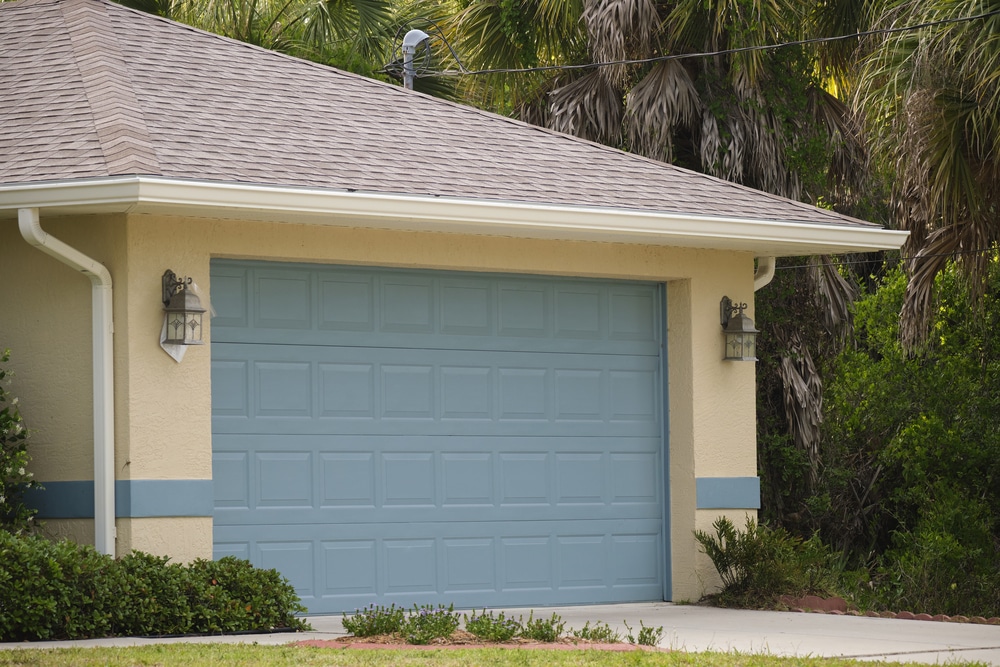If you’re shopping around for garage doors, you’ve probably been asked by your construction professional whether you’re looking for an insulated or non-insulated garage door.
When our clients are making their decision, they often ask our advice on whether insulated garage doors are worth it. The answer? It depends. As experts in the garage door industry, we’re sharing the basic information you’ll need to decide between an insulated and non-insulated garage door.
The Importance of a Garage Door’s R-Value
Before we go over the benefits and drawbacks of insulated garage doors, you’ll need a basic understanding of a garage door’s R-value and how it affects insulation.
A garage door’s R-value is the measure of its ability to prevent heat loss. The higher the rating, the better the door will insulate your garage. This reduces energy costs and protects people, pets, vehicles, and belongings from damage caused by temperature extremes.
Insulated Garage Door Benefits & Drawbacks
If your garage is attached to your home or business, the benefits of an insulated garage door could greatly outweigh the cost. An insulated garage door can help keep your home quieter by blocking street noise. It can also help lower energy costs by keeping your garage’s temperature–and thereby your home or business’s temperature–more consistent.
However, even if your garage is detached, you may still want an insulated garage door. Here’s a more comprehensive list of pros and cons of insulated garage doors:
Pros:
- Helps maintain a consistent garage temperature and reduce energy costs
- Quieter, sturdier, and more durable
- Can increase the value of your home or business
Cons:
- More expensive
- Heavier and less efficient if constantly in use
- Possibly unnecessary if kept open for long periods at a time
Insulated Garage Door Prices
Generally, the higher your garage door R-value, the higher the price. This is because of the extra materials required; an insulated garage door is either made with fiberglass (less expensive) or steel (more expensive) with polystyrene (less expensive) or polyurethane (more expensive) on the inside for insulation.
However, an insulated garage door could pay for itself quickly. As previously mentioned, one of the biggest benefits of insulated garage doors is that higher costs could be offset by lower energy bills.
Finally, as always, we recommend hiring a professional to avoid any expensive accidents that could happen if you DIY your garage door’s insulation. Don’t forget to account for professional labor costs in your budget.
Insulated garage door prices can range between $900 and $2600 for materials, $150 and $500 in labor for a single door, and up to $1,000 in labor for a double door.
Professional Advice from American Door Works
If you’re still not sure if an insulated garage door is the right choice for your Minnesota home or business, one of the dedicated garage door professionals from American Door Works would be happy to help.
With 50 years of garage door industry experience under our belts, your residential or commercial garage door is in the best hands possible. Contact us today to discuss your garage door needs.


